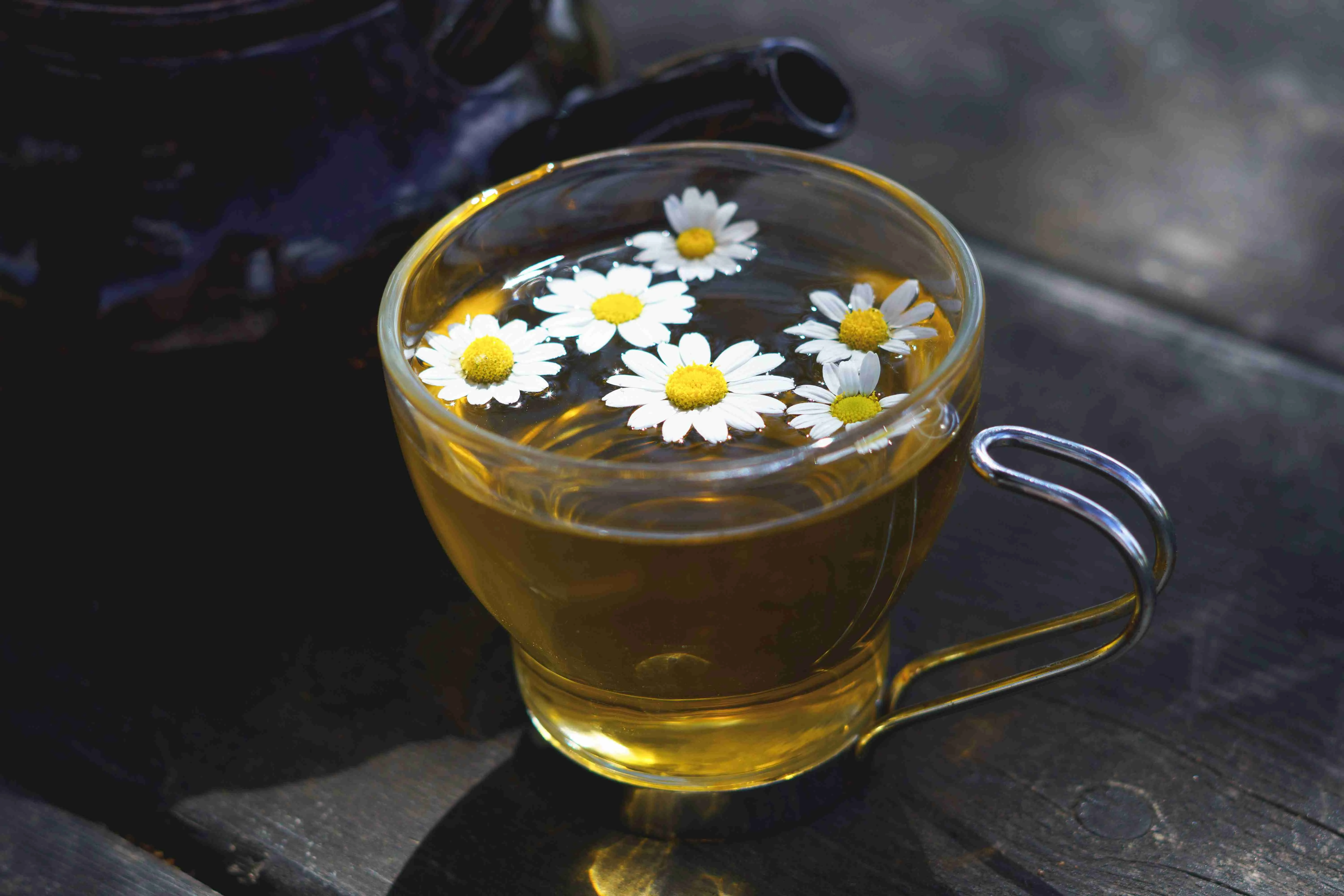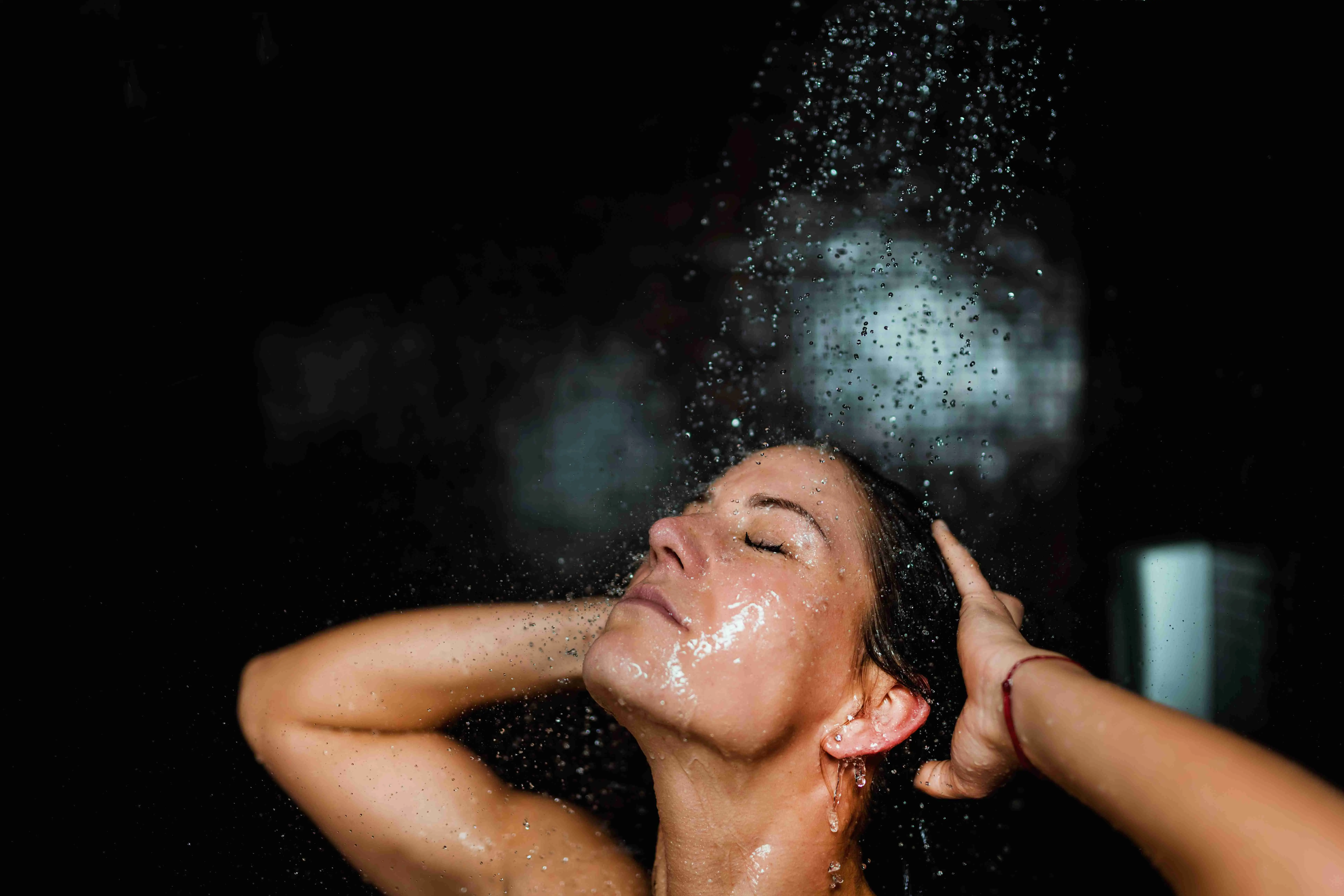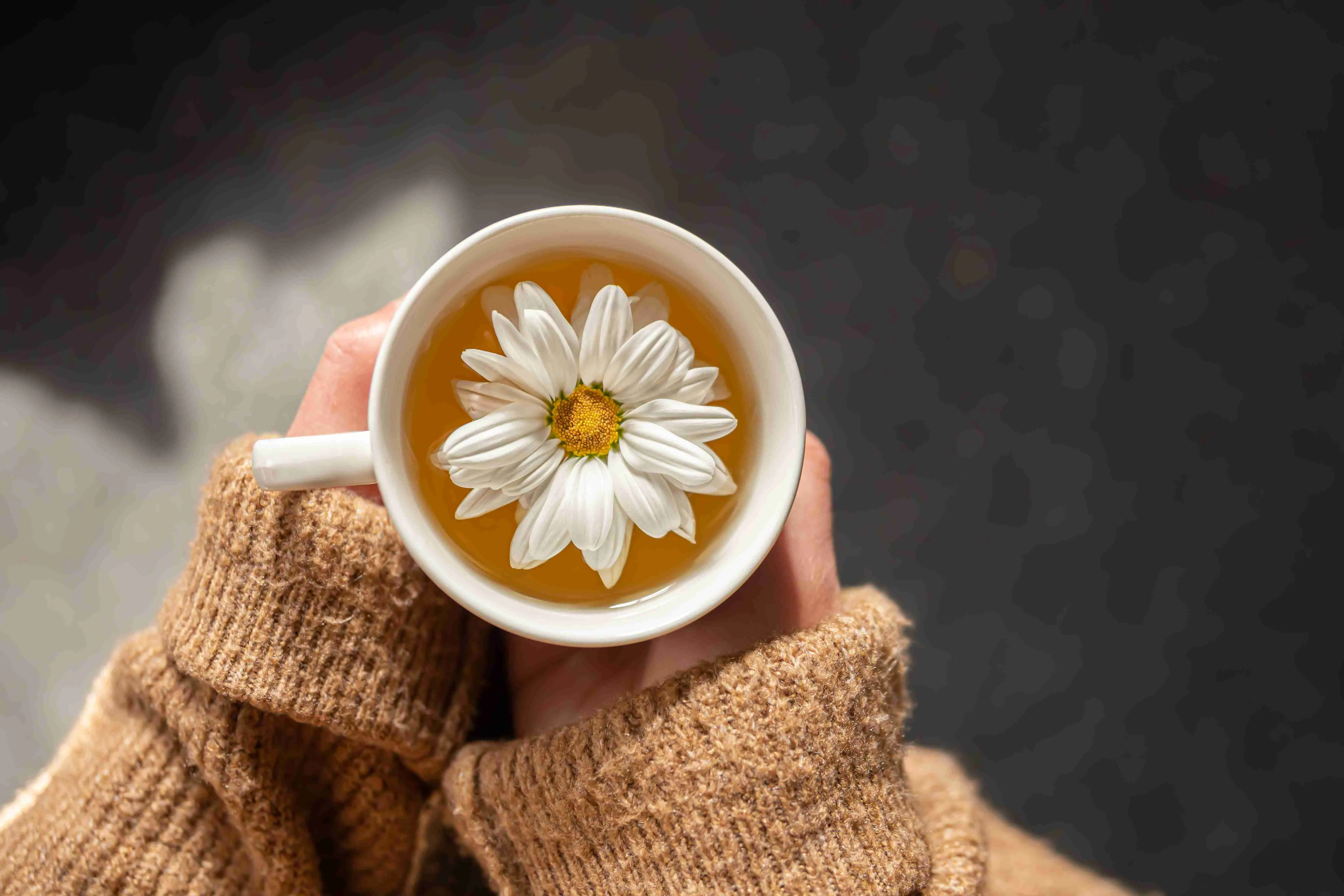Chamomile tea is a natural mild sedative that relaxes the nervous system and induces sleep. The plant's name is translated from Greek as ''ground apple'' and has many variants. However, German and Roman chamomile is made into tea and is effective for sleep.
In this article, we will explore the impact of chamomile tea on the body with research-based insights on its effectiveness as a sedative and other possible benefits it may provide.
Key Takeaways
- Studies on chamomile's efficacy for sleep show mixed results. While some trials suggest improved sleep quality in certain groups (e.g., postpartum women), others find little to no impact.
- Chamomile is gentler and has fewer side effects than remedies like Valerian root or melatonin. Drink it 45–60 minutes before bed. Practices like taking a hot bath, using aromatherapy, and wearing loose sleepwear can also make you fall asleep faster.
- Chamomile tea is generally safe for nightly use, but pregnant women, those allergic to daisies, or people with chronic insomnia should avoid it.
- Chamomile is not as potent Valerian root, hops, or melatonin when it comes to inducing sleep, but is preferred for its minimal side effects.
Does Chamomile Actually Improve Sleep?

There is much debate on Chamomile tea and its ability to influence sleep quality. In 2016, a randomized controlled trial revealed that 40 postpartum women were given a cup of chamomile tea a day for two weeks, while another 40 were getting nothing. The results showed that the women in the tea group had better scores on their sleep questionnaires. However, after they stopped taking the tea for four weeks, the difference disappeared.
In an older study in 2011, patients received chamomile capsules twice a day for a month and monitored their sleep routine. The research showed no difference between how fast the patients fell asleep and how much sleep they got. Each dose contained 15 grams of chamomile, which could only be achieved in a concentrated form.
So far, there have been mixed findings on chamomile's efficacy in battling sleep issues. However, in comparison to other natural remedies for sleep, like Valerian and melatonin, chamomile is the most gentle with the least side effects. It is important to be wary of chamomile if you are allergic to anything in the daisy family.
How Long Does It Take for Chamomile Tea to Make You Sleepy?

It takes about 45 - 60 minutes for chamomile to go around your body. This is the time needed for your body to fully metabolize the chemical compounds in chamomile to induce sleep properly.
Certain factors influence the time needed to feel chamomile full effect. Let's explore them below.
- It is best to take Chamomile tea just before bed, as your body is shutting down for the night. This way, you can relax and feel the full effects of the tea.
- Your body's ability to break down substances also plays a major role. For example, if you have a slow metabolism, your body may take up to an hour to properly absorb the compounds in chamomile, which, by extension, cuts your sleep time and even defeats the purpose of the tea.
- It is better to take chamomile tea after eating, as it also helps with digestion and prevents bloating, making it easier to fall asleep.
How to make the most of Chamomile tea for sleep
Before taking chamomile tea at night, here are some good practices to employ to enjoy the full effect of nature's tranquilizer:
Take a hot bath

A hot bath can help relax your muscles and put you in a calm mood. Research shows that taking a hot bath 90 minutes before bed can help you fall asleep faster. Our bodies usually trigger melatonin, the hormone responsible for initiating sleep, when we are close to our regular bedtimes. When your body feels warm during a bath, your internal temperature will drop, making it easier for you to fall asleep.
Use aromatherapy
Light a soy candle or use a chamomile essential oil diffuser to create a calm and soothing atmosphere for your evenings. Chamomile and lavender scents are known to slow down heart rate, reduce blood pressure, and improve sleep quality.
Wear the right sleepwear

It is difficult to sleep when you feel restricted in tight clothing. Choose loose-fitting sleepwear made of light and breathable cotton. Better still, sleeping naked can be a better option and is scientifically proven to be better for your health.
Maintain a consistent schedule.
Waking up and going to bed at the same time every day conditions your body to establish and maintain circadian rhythms, which helps your body begin to shut down at certain times at night, making it easier to fall asleep.
Who Benefits the Most from Chamomile Tea for Sleep?
Chamomile tea contains a flavonoid called apigenin, which has a sedative effect. It helps new mothers sleep better and reduces the chances of postpartum insomnia. It is also very helpful for inducing sleep in people with mild insomnia.
Anyone suffering from stress-induced sleep issues will find chamomile tea a worthy addition to their nighttime routine. Chamomile tea also helps elderly individuals sleep better. A study showed that elderly patients who took chamomile slept significantly better than those who didn't.
However, chamomile tea may not be very effective in people who have chronic insomnia as it is a mild natural remedy. Pregnant women and anyone with an allergy to daisy plant variants should also avoid chamomile.
How Much Chamomile Tea Should You Drink Before Bed?
There is no required dosage for chamomile tea. However, it is wise to pay close attention to the amount you take and its effects on you for at least three weeks before drawing your conclusions.
You could brew up to 1 - 2 teaspoons of chamomile flowers in 1 ½ cups of water. Here are some tips for brewing the perfect cup of chamomile tea:
- Boil water just below boiling point to preserve the oils in the flowers.
- Add 1 - 2 teaspoons of chamomile flowers to your infuser or directly into a cup.
- Pour the hot water over the flowers and let it steep for 5 minutes. For a stronger brew, you can steep it for a longer time.
- Filter the flowers and add a spoonful of honey or a slice of lemon for sweetness.
Excessive consumption of chamomile tea can cause some side effects, including nausea and vomiting, allergic reactions, anaphylaxis, etc.
Chamomile Tea vs. Other Sleep Aids: How Does It Compare?
Valerian root is more effective than chamomile tea in treating insomnia and improving sleep in postmenopausal women. It can be combined with hops, lemon, and other herbs. However, it can cause headaches, irritability, upset stomach, and other side effects, so it's important to take it in moderation.
Hops is another effective sleep aid. A 2014 study found that it improved sleep for university students. However, You should not take hops if you have hormonal issues and should discontinue use when you have unusual symptoms.
Melatonin is a hormone that initiates sleep and controls the rhythm of sleep. It can be helpful to take melatonin supplements, but you must stick to the recommended dose of 1 to 5 milligrams before bedtime. Some side effects might include wakefulness at night, depression, stomach cramps, and grogginess.
While chamomile tea can be beneficial, most people only experience adverse effects when they take too much of the tea. You should also note that an overdose can make your body build resistance to it and render it almost useless. Make sure to moderate your intake of any sleep aids, especially chamomile tea.
FAQs About Chamomile Tea and Sleep
Can chamomile tea cause drowsiness during the day?
Yes, Chamomile tea can make you drowsy in the daytime, but the risk is low. However, you should practice mindfulness and only consume chamomile tea at night as a sleep aid if you experience drowsiness during the day.
Is it safe to drink chamomile tea every night?
Yes, chamomile tea is safe to drink every night. However, certain factors, such as allergies, pregnancy, medications, and sensitivity to its chemical compounds, should be considered.
Does chamomile tea have caffeine?
No, chamomile tea does not contain caffeine, and it is known as a relaxing tea.
What's the best time to drink chamomile tea for better sleep?
The best time to drink chamomile tea is 45-60 minutes before bed. This allows your body to metabolize its compounds enough to cause drowsiness.
Conclusion
Chamomile dates back to ancient Egypt, when it was used as a cure for all sorts of ailments, such as malaria, rashes, inflammation, and digestive disorders. In modern times, it is well known for its ability to induce sleep. If you have mild insomnia, chamomile can be a great option to try while building healthier sleep habits.
Karen Barnard
Karen is a Human Movement Science expert and a certified sports nutrition and massage therapist. At Sleepiverse, she combines her passion for human movement science and sleep health to educate herself and her readers about healthier sleep. In addition to writing articles, Karen manages a fitness studio offering private training, athletic conditioning, and sports massage therapy. She focuses on providing people with a holistic environment for people to reach their health goals, often incorporating stretch therapy to promote mental tranquillity and help people improve their sleep.


